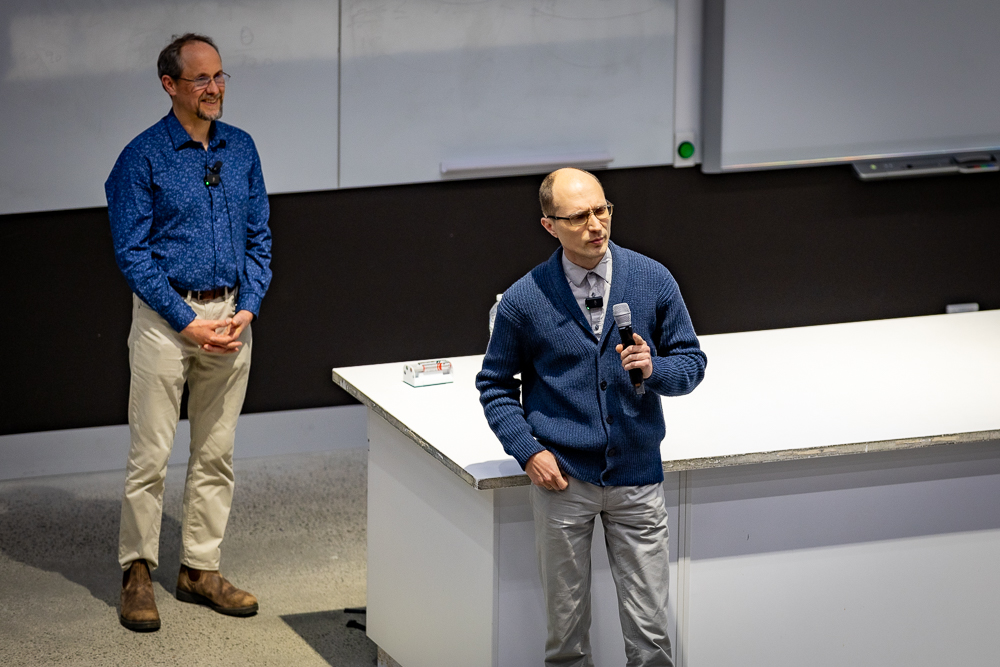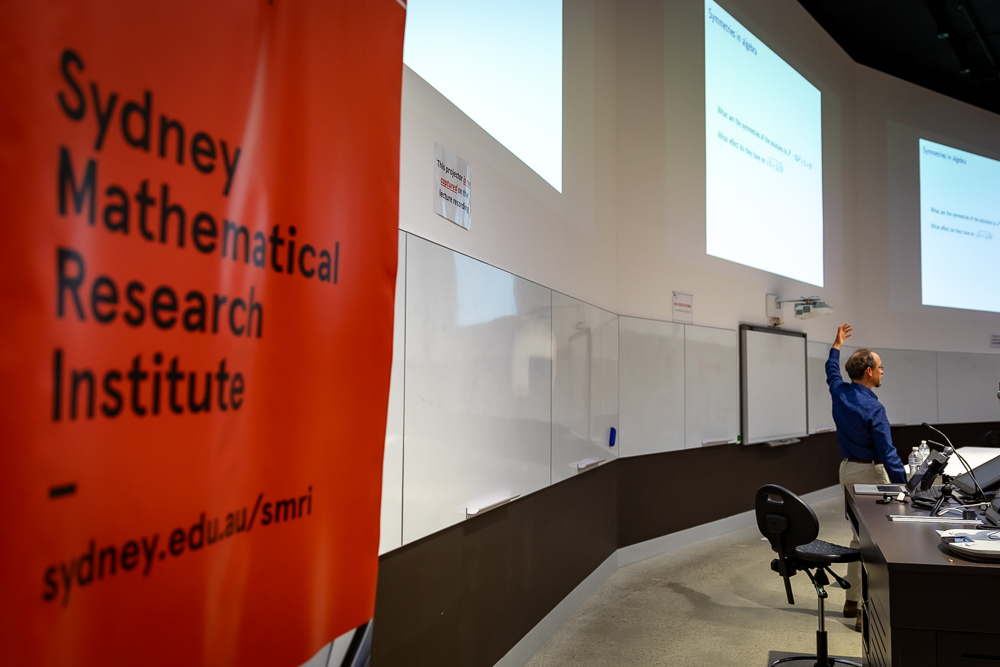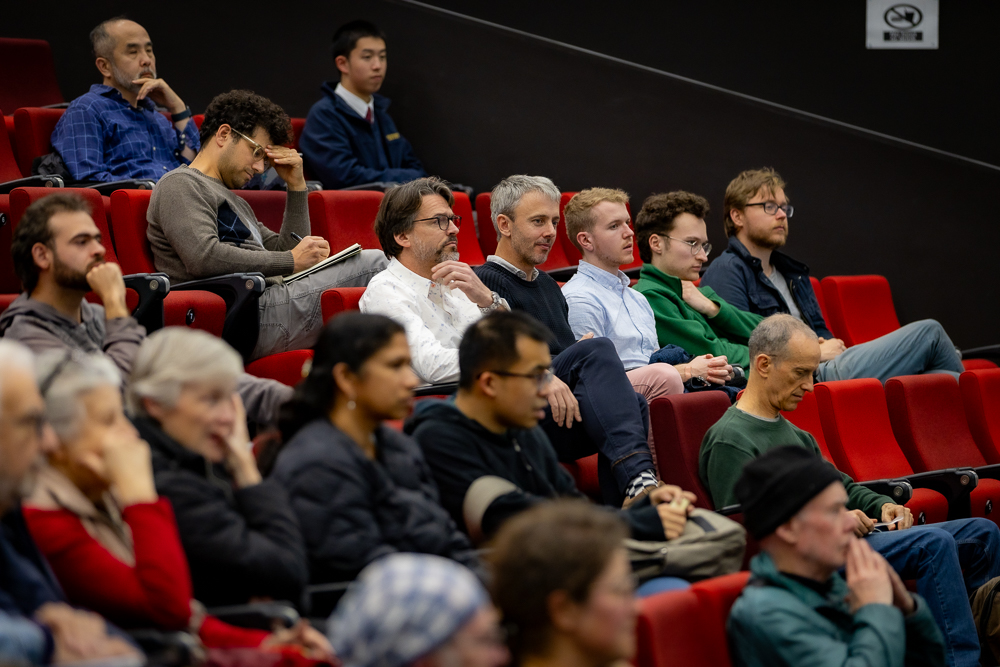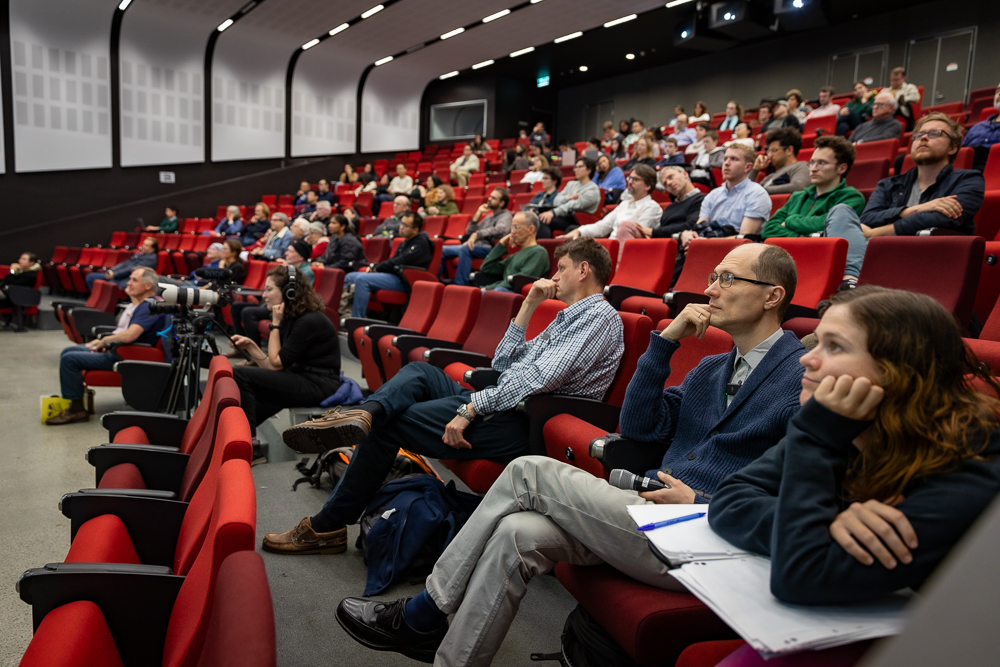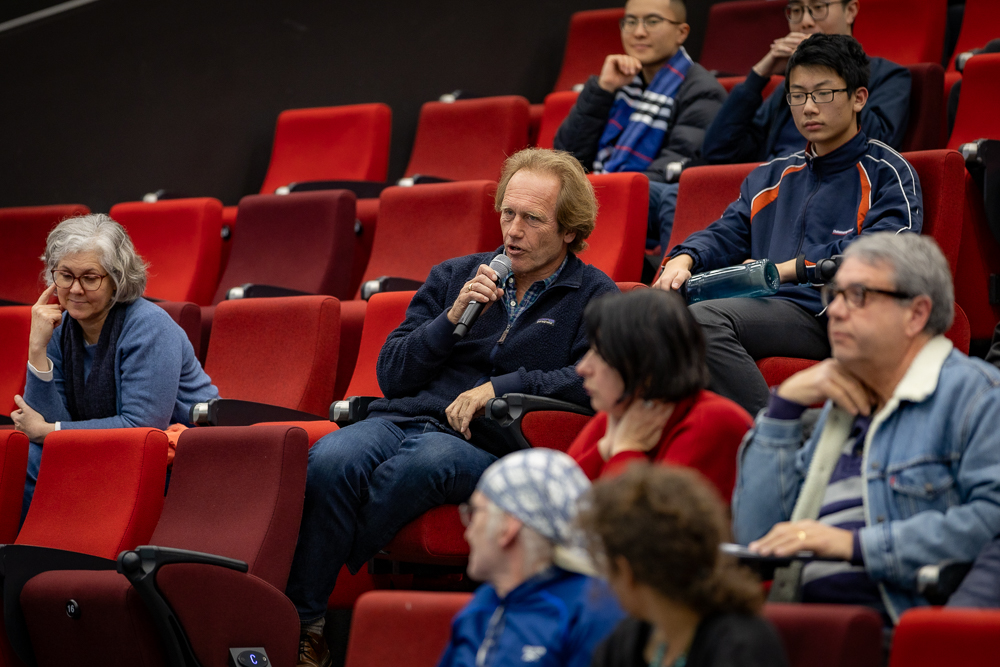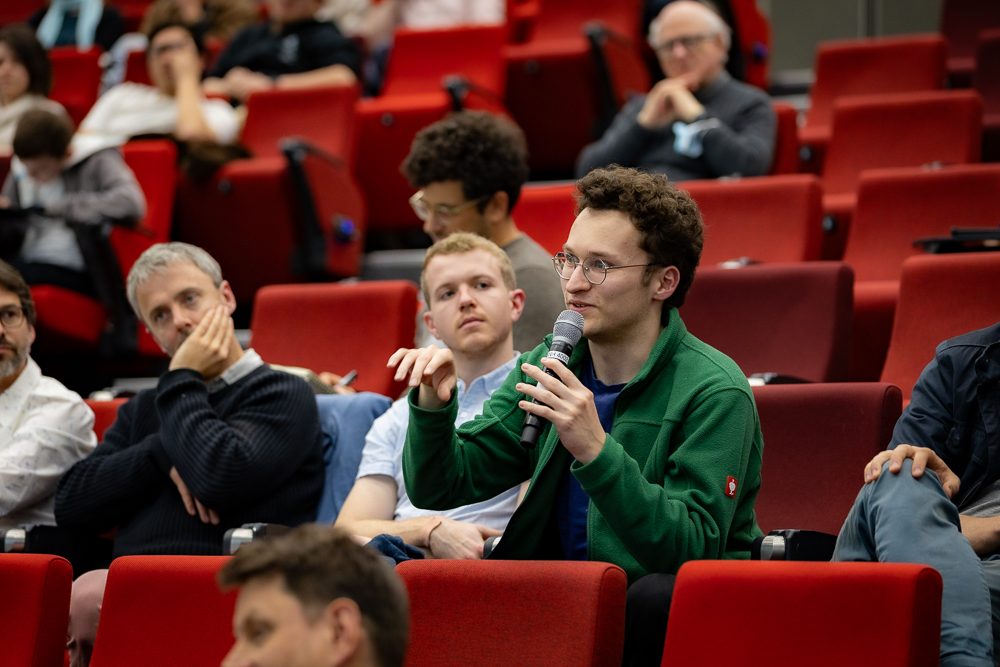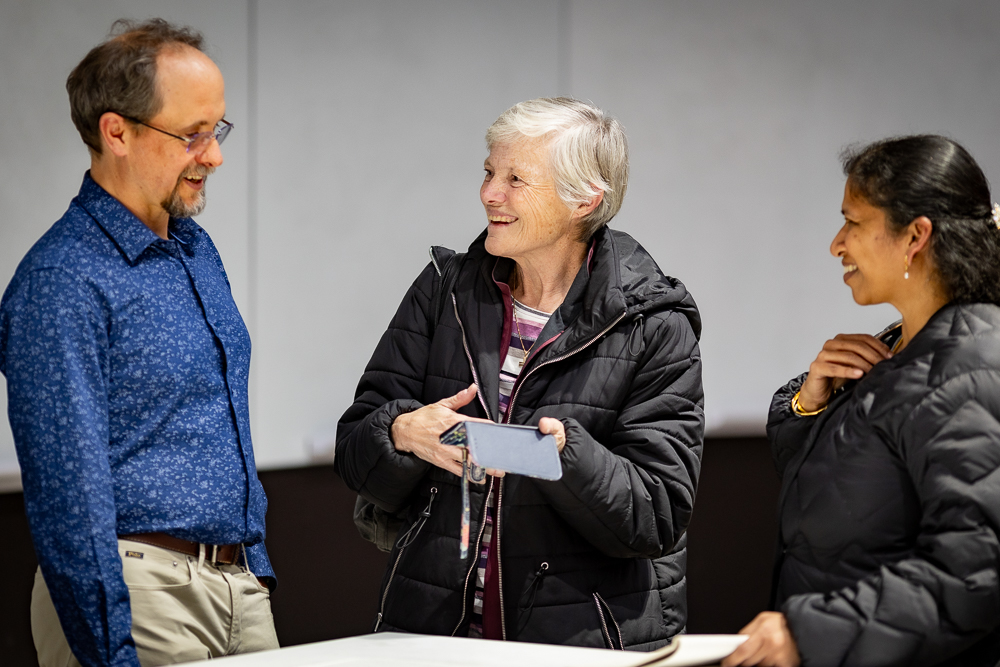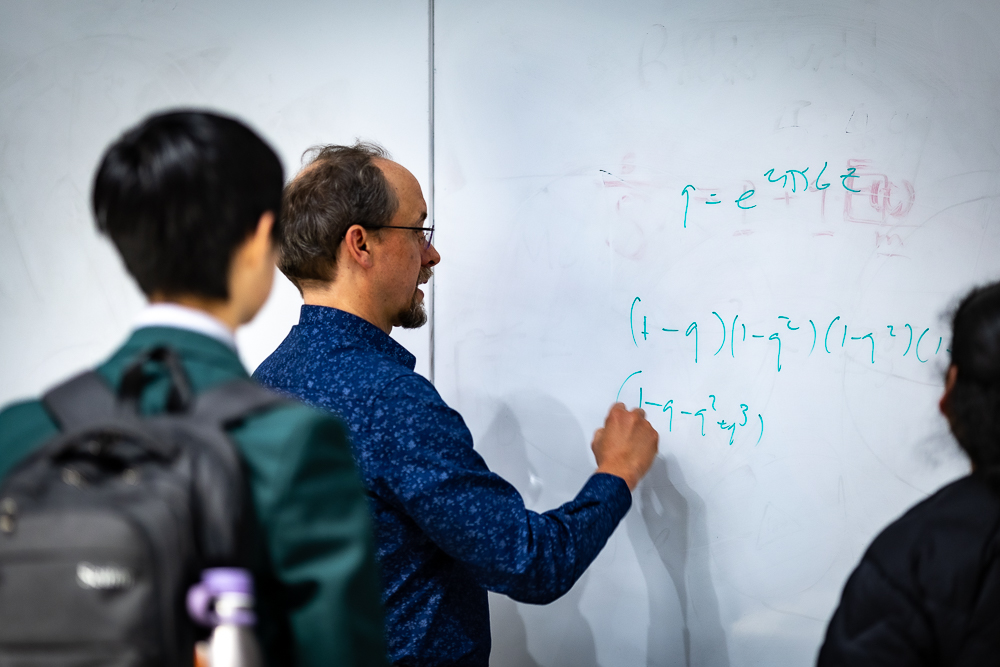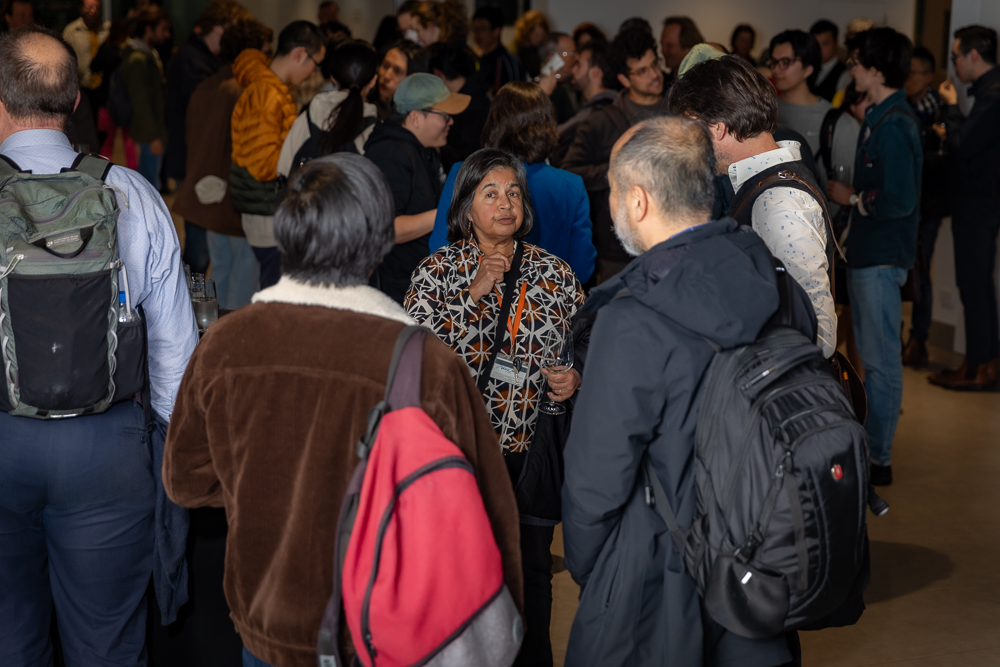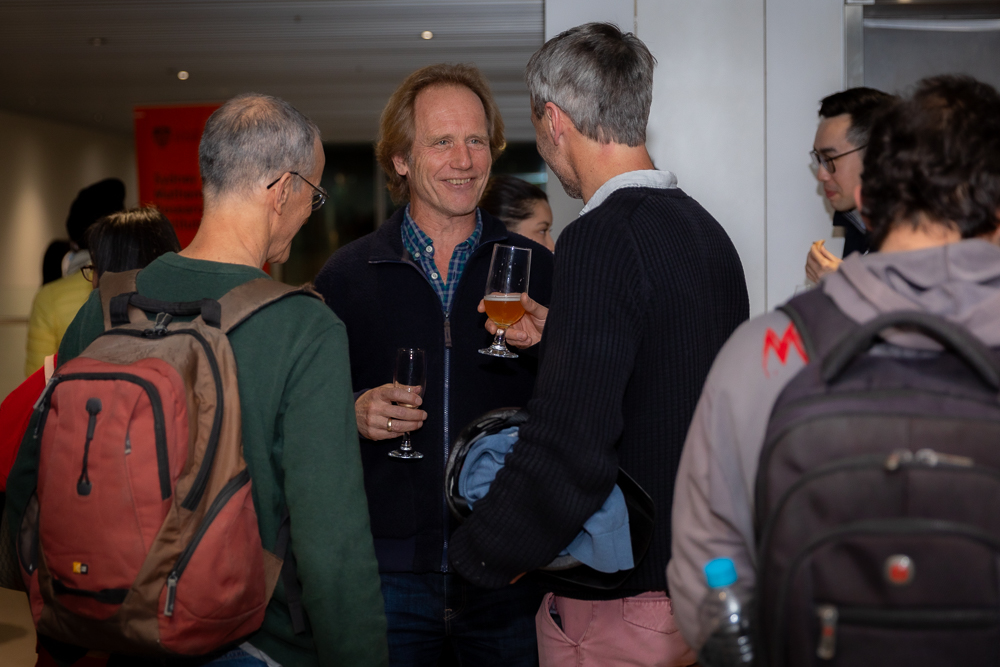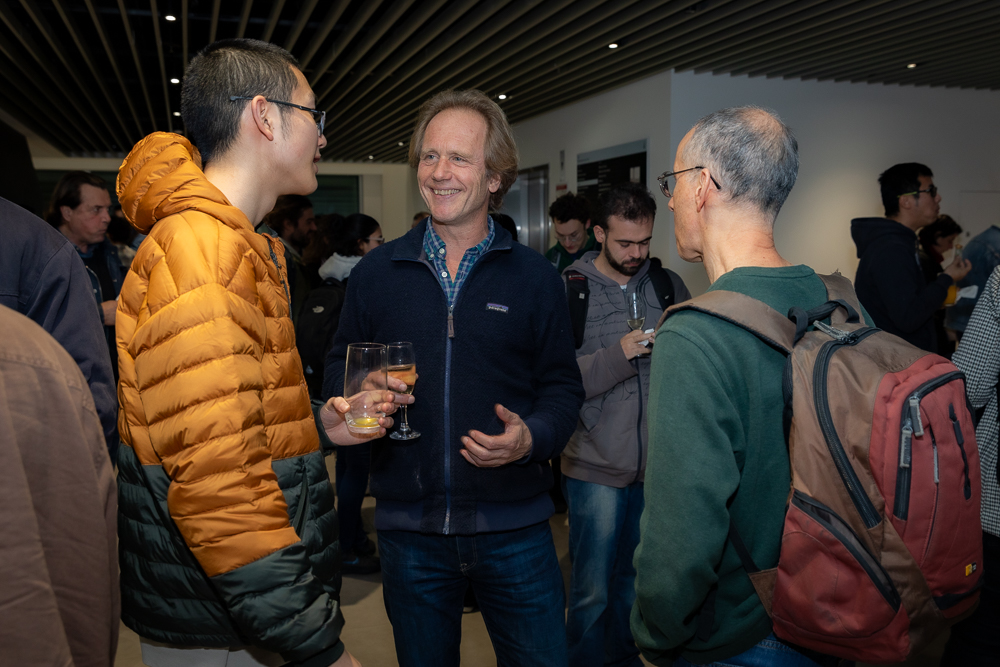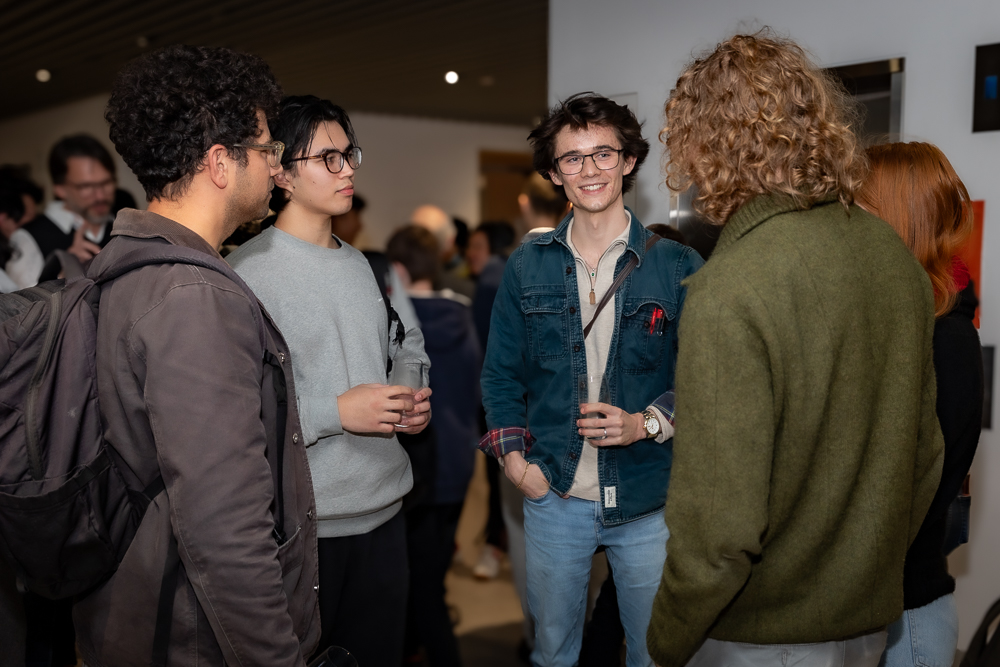SMRI was delighted to welcome University of Chicago Professor, Matthew Emerton, to present a public lecture, as part of the Mahler Lecture Series. You can view the full video below.
The Mahler Lectureship is awarded every two years to a distinguished mathematician who usually works in an area of mathematics associated with the work of German mathematician Professor Kurt Mahler (1903-1988), who was one of the major characters of Australian mathematics from his arrival in Australia in the 1960s, until his death.
SMRI hosted the first of twelve events across Australia, and the public lecture given by Professor Emerton did not disappoint. Matthew captured the audience’s attention with some of the key ideas in the theory of numbers, as developed over the last two thousand-plus years. Beginning with the theory of geometric constructions from ancient Greek geometry, and its relationship to the discovery and properties of irrational numbers, Matthew articulated in broad outlines how these ideas evolved, through the theory of equations and their symmetries as developed by Galois, culminating in a description of some of the contemporary aspects of the theory. The focus cleverly emphasized how symmetries of mathematical problems, some obvious but some not-so-obvious, play a hidden role in the nature of their solutions.
Matthew Emerton is a Professor in the Department of Mathematics at the University of Chicago. His areas of research are number theory, arithmetic geometry, and representation theory. He is known for his work on the Fontaine–Mazur conjecture, and for his construction (with Professor Toby Gee of Imperial College) of the eponymous Emerton–Gee Stacks, higher dimensional algebro-geometric objects which parameterize local Galois representations.
Video of Public Lecture
Photo Gallery
